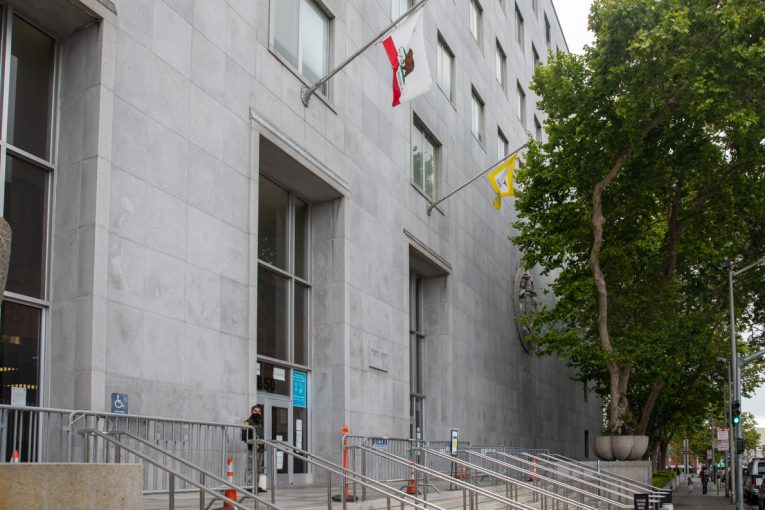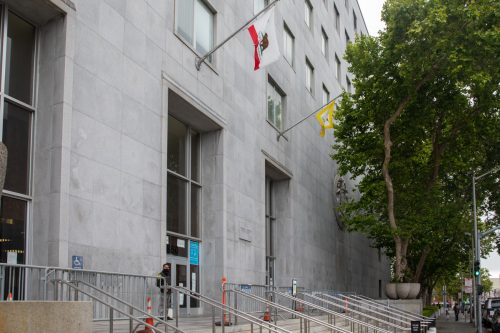

By Cheyenne Galloway
SAN FRANCISCO, CA – The San Francisco Financial Justice Project this week released its one-year evaluation of “Be The Jury,” a year-old project that increases juror’s pay from $15 to $100 per day for jury services, allowing for more diverse and representative juries in San Francisco.
The evaluation shows the program (with over 1,000 participants) demonstrates its impact on increasing racial and economic diversity in jury services, according to Michelle Lau of the Financial Justice Project in San Francisco.
Lau explained jury duty allows for pure civic engagement, ultimately impacting the well-being of this country and its inhabitants. Unfortunately, due to economic and social constraints, jury duty is a privilege that only some are afforded. Thus, many prospective jurors residing in neighborhoods most affected by the criminal legal system are not granted the time to participate in political engagement.
She argued the “Be The Jury” program aims to curb uniform juries by increasing jury compensation, thus widening the barrier of entry for those from low-income backgrounds.
Working in tandem, the Financial Justice Project, the San Francisco Superior Court, District Attorney’s Office, Public Defender’s Office, and Bar Association initiated the “Be The Jury” Pilot Program.
An idea conceived in March 2022 designed to compensate low-income jurors and promote civic participation in all income distributions has led to jurors in San Francisco being allotted $100 a day for their participation in criminal trials instead of the previous $15.
As stated in a statement from The Financial Justice Project, to gain eligibility to the program, a juror’s household income must be lower than 80 percent of the Area Median Income, which is reportedly $74,600 for an individual and $106,550 for a household of four.
Additionally, a juror must satisfy one of the following: their current employer does not compensate for jury service, nor the estimated duration of the service; the juror is unemployed or self-employed.
According to Lau, the one-year evaluation of “Be The Jury” revealed:
- The majority of those who participated in “Be The Jury” and criminal jury services were only able to because of the $100 per day allowance. “Eighty-four percent of participants said they could serve as a result of the $100 compensation. In particular, 91 percent of Black participants said the stipend made it possible for them to serve.”
- Most of the program participants provided an inclusive representation of the vast San Francisco population. “Sixty percent of participants self-identified as people of color.”
- Those in the “Be The Jury” program constituted a significant number of the jurors serving on criminal trials. “Nine percent of jurors serving on criminal trials in San Francisco were ‘Be The Jury’ participants.”
- Jurors from “Be The Jury” had low incomes, thus supporting the program’s goal of removing financial hardship barriers to civic engagement. “The median household income of participants was $38,000. The area median household income in San Francisco is $121,826.”
- Feedback from those participating in “Be The Jury” was overall positive. “Interviews with participants found that jurors had a positive shift in attitude towards jury service and the judicial system. Ninety-five percent of participants completed a voluntary survey.”
San Francisco Mayor London Breed said, “In our country’s history, laws barred certain communities from serving on juries. ‘Be The Jury’ is groundbreaking because even when those discriminatory laws changed, low-income jurors – many being Black, Asian, and Latino – struggled to be able to serve because they couldn’t give up their wages. ‘Be The Jury’ is the kind of smart, innovative change that will create a more equitable and fair criminal justice system.”
District Attorney of San Francisco Brooke Jenkins stated, “The ‘Be The Jury’ pilot exemplifies the value of removing financial hardship barriers and allowing individuals to administer justice for the diverse communities they represent. The achievements of the pilot program clearly demonstrate that we improve the socio-economic and racial diversity of jurors, resulting in greater equity within our criminal justice system, when we eliminate income as a deciding factor.”
“No one should have to decide between making ends meet or fulfilling their civic duty. The ‘Be The Jury’ program results make it clear that paying people to serve on juries is a necessary step towards upholding our constitutional right to a trial by peers,” said San Francisco Treasurer José Cisneros.
San Francisco’s Public Defender Mano Raju argued, ‘Be The Jury’ is delivering on the promise of fair jury trials by empowering community members from diverse backgrounds to participate in jury service. Our pilot program has shown that with increased compensation, we can make it possible for many more people to serve on a jury to carry out this crucial civic right and duty.”
As the program has evolved, it has also inspired the proposal of similar enactments such as Assembly Bill (AB) 881 (D-Ting): “Be The Jury” California, which is comparable to the original “Be The Jury” pilot program launched in San Francisco; however, it applies to other California counties. The bill has bipartisan support as it currently moves through California Legislation and, to date, resides in the Senate Appropriations Committee.
Phil Ting (D-San Francisco), author of the ensuing Assembly Bill (AB) 1452 and AB 881, commented on the expansion of the program in the report, “I’m thrilled to see that higher jury pay for lower-income Californians does, in fact, diversify juries. These findings now make the case for my latest bill, AB 881, which seeks to expand the ‘Be The Jury’ pilot program to four other counties. When juries are more reflective of the communities they serve, they spend more time in deliberations and are less likely to presume guilt. Multiple perspectives weighing in helps defendants get a fair trial.”
“Potential jurors should not have to decide between serving their civic duty and having enough money to take care of their families,” added Yolanda Jackson, Executive Director and General Counsel of the Bar Association of San Francisco. “I am thrilled at the possibility of this program going statewide.”